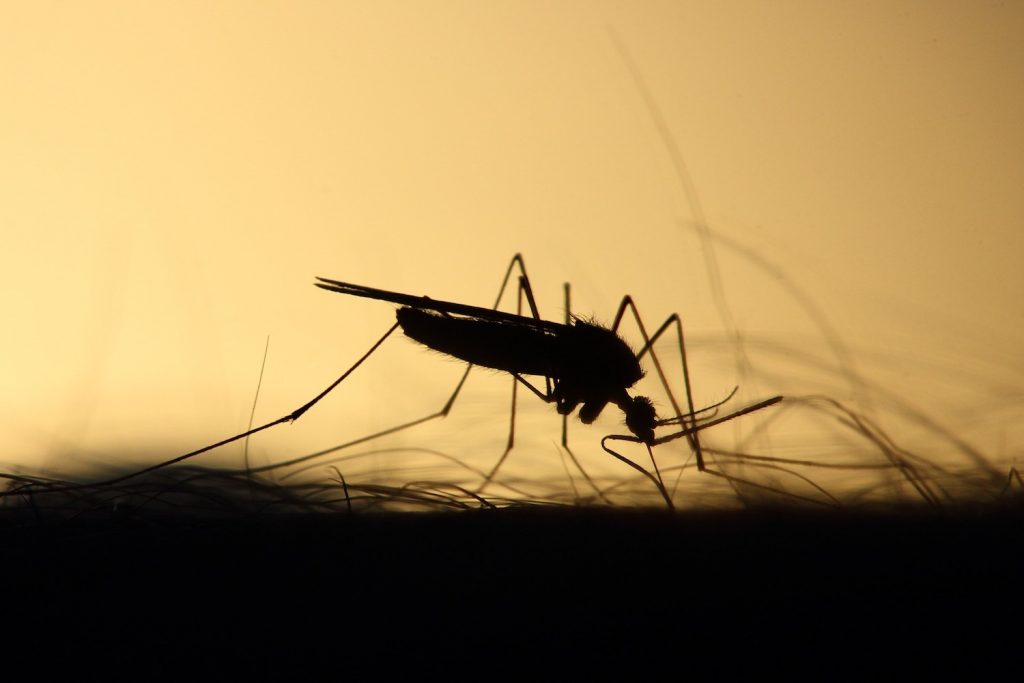Victor H. Gutierrez-Velez never expected his work to lead him to the topic of public health. His expertise lies in remote sensing science, analyzing data such as satellite images. “Every day, numerous satellite images are taken,” says Gutierrez-Velez. And the information drawn from these images has both academic and commercial applications.
For example, satellite images can help prescribe management, fertilization, irrigation, and other activities in precision agriculture, according to Gutierrez-Velez. They can help the insurance industry assess risks related to flooding or other natural disasters, or to verify crop insurance complains. Satellite imagery can allow energy companies to pinpoint the ideal location for solar panels. And this kind of data, it turns out, can even come in handy when it comes to fighting certain diseases.
To that end, partnering with colleagues with expertise in biology and public health, Gutierrez-Velez, assistant professor in the College of Liberal Arts, has recently been drawn to an unlikely research subject: mosquitoes. Specifically, the tiger mosquito (scientific name: aedes albopictus). What’s so interesting about this tiny, blood-sucking bug?
“It’s worrisome. They can spread the Zika virus and other dangerous diseases,” says Gutierrez-Velez.
In 2016 when the Zika pandemic caught his interest, mosquitoes dominated the headlines. Once thought to be limited to tropical and subtropical regions, the tiger mosquito had expanded its territory into most continents. Climate change plays a role, but these mosquitoes are also particularly aggressive. They’re among the 100 most invasive species in the world. In the 1980s, they were first spotted in the U.S. in Texas. Today, they reach as far north as Connecticut. Their presence in Pennsylvania remains an ongoing public health concern.
For his project, a recipient of the Office for the Vice President of Research‘s Targeted Grant Program and supported by the Data Science Institute housed at the Fox School, Gutierrez-Velez decided to look at multiple datasets, including climate data, information gathered from sampling for the presence of the tiger mosquito, land cover data, and census information. Gutierrez-Velez believes that with these and other datasets as inputs, machine learning and advanced algorithms can be used to predict the locations of tiger mosquito populations in advance of the season.
One of the most interesting possible findings of this research is that the tiger mosquito is less of a rural dweller than previously thought. “What we’re finding contradicts conventional wisdom about where these mosquitoes live. They are becoming domesticated animals. They prefer to be where lots of humans are living closely together—in cities. Because they love our blood,” says Gutierrez-Velez.
Scientific curiosity led Gutierrez-Velez to census data, which is not necessarily an obvious source of information to predict the presence or absence of a small flying bug. “If they feed on humans, human behavior should have something to do with it,” he says. And it does seem like including this data makes for a more accurate prediction about where the mosquitoes will go next.
Gutierrez-Velez’s ultimate goal for the project is to perfect a reliable working model that can be used to predict the upcoming mosquito season. Knowing that a particularly bad mosquito season is about to start will give officials the opportunity to plan in advance.
For example, the most affected areas can be targeted for treatment before the problem becomes unmanageable. Residents could be strongly cautioned in advance of the season to deal with housing-related conditions, such as places that collect standing water, which act as mosquito breeding areas. In the event that mosquitoes are spreading Zika or another virus, these protections could even save lives.
“There’s a lot we can do if we have a model that can say, ‘Hey, it’s going to be a bad year for mosquitoes, get ready,’” says Gutierrez-Velez.
This story was originally published in On the Verge, the Fox School’s flagship research magazine. For more stories, visit www.fox.temple.edu/ontheverge.

